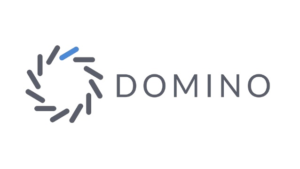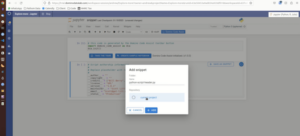
Domino Data Lab Announces Domino Code Assist to Shrink the Data Science Talent Gap

(CG_dmitriy/Shutterstock)
Domino Data Lab has announced the general availability of a new product, Domino Code Assist (DCA).
DCA automatically generates Python and R code for common data science and analysis tasks such as data ingestion, preparation, visualization, and app creation tasks. Domino says DCA employs a code-first strategy that will enable CDOs and CDAOs to involve more analytics professionals in data science and machine learning projects by improving efficiency and providing a platform for learning valuable coding skills.
“Domino Code Assist is a game-changing opportunity for CDAOs and all analytics executives who strive for growth and expansion in their data science talent and culture,” said Nick Elprin, co-founder and CEO at Domino Data Lab. “I am excited to witness the impact this new superpower will bring in solving the most challenging business problems faced by enterprise data science teams.”
 Domino says DCA can allow data scientists to become 5x more efficient at writing code for visualizations, data import, and transformations. They can also share and reuse code snippets to automate repetitive tasks and collaborate with the entire team, freeing their time up for more pressing business issues. Business analysts can learn the necessary commands and syntax for coding and can use a repository of existing work to ensure their work is consistent with the rest of the team.
Domino says DCA can allow data scientists to become 5x more efficient at writing code for visualizations, data import, and transformations. They can also share and reuse code snippets to automate repetitive tasks and collaborate with the entire team, freeing their time up for more pressing business issues. Business analysts can learn the necessary commands and syntax for coding and can use a repository of existing work to ensure their work is consistent with the rest of the team.
Domino saw an unmet need for this solution when speaking to its customers about capacity constraints for data science talent, noting that these hiring constraints are limiting the full potential of organizations’ data science capabilities.
“To overcome these capacity constraints, some organizations have focused on hiring expert data scientists with advanced coding skills. In contrast, others pursued less technical talent using drag-and-drop, no-code, or ‘automated machine learning’ solutions. It’s the ‘coders’ vs. ‘clickers’ debate,” said Elprin in a blog post accompanying the new product’s announcement.
In the competitive world of data science hiring, recruiting expert data scientists can be expensive and slow, Elprin notes, which has sometimes led to businesses adopting no-code solutions with drag-and-drop interfaces. While these work well for certain use cases like data prep and traditional BI, he says they will inevitably require customization and fine-grained control for advanced use cases.

Domino Code Assistant users can create reusable snippets of code that can be centrally stored and shared. (Source: Domino Data Lab)
David Stodder, senior director of research at TDWI, agrees: “No-code solutions with drag-and-drop interfaces are appealing at first because they promise an easy path to data science, however, their limitations can prove frustrating for unlocking the full value of data, and the inner workings of analytics solutions are often a ‘black box.’ This leads leaders to skepticism and mistrust around insights for business-critical decisions,” he said. “Building a code-first talent pyramid connected by shared data science programming languages improves data science collaboration, the mentorship of newer data scientists, and ultimately increases workload capacity while accelerating transformation into a true data-driven organization.”
Domino says a code-first approach, or one that eschews black-box tooling or proprietary drag-and-drop interfaces, allows data prep, dashboards, and models to be transparent and portable while enabling business analysts to collaborate with advanced data scientists in the same languages and environments.
“Python is the new Excel and Domino Code Assist is about pushing the adoption of code-first data science in a way that has not been conceived of before,” said Sean Otto, PhD., director of analytics at AES Corporation. “By enabling both our advanced and low-code team members with a common platform to deliver AI and ML with Domino, we can accelerate the innovative use of our data across a wide variety of technical and non-technical data practitioners and data-adjacent parts of our business.”
In addition to its unveiling of DCA, Domino also announced that former Plotly Co-founder and CEO Jack Parmer is joining the Domino team. The company says that Parmer was instrumental in bringing the Dash framework for Python to market, and he will be conceiving and executing new product initiatives in close collaboration with Domino’s customers and leadership.
“Domino is hands-down the leading platform for enterprise data science among the Global 2000,” said Parmer. “I’m thrilled to leverage my experience in building Plotly to help Domino’s customers solve for the AI talent gap with a code-first strategy to democratize AI using Python and R analytics.”
Related Items:
Three Reasons Python Is The AI Lingua Franca
Data Science Needs to Grow Up, Domino Says
Anaconda Unveils New Coding Notebooks and Training Portal































